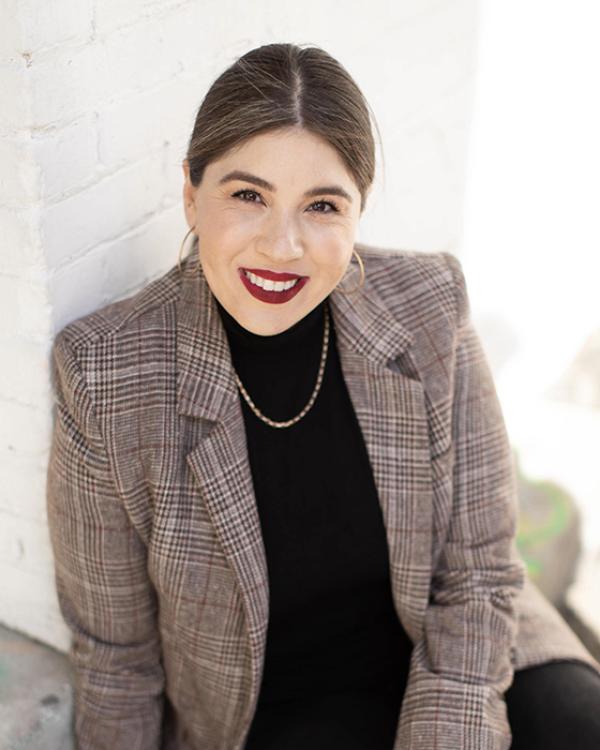
Adanari Zarate, keynote speaker for the 2022 Research Symposium
Although the 2022 iteration of the Gevirtz School Research Symposium, hosted by the Graduate Student Association in Education (GSAE), is officially the third annual, in many ways it feels more like the first. That’s because the COVID-19 pandemic meant the first two years the event had to be held virtually. This year’s event on May 21-22, will, at long last, be in person.
“It's really exciting to watch the symposium all come together,” says Mary Franitza, President of the GSAE and one of the organizers of the event. “This year we sent out a call for presentations with the intention of having this event in person. In the past, we've had about 30 participants so imagine my surprise when I found out we had 57 submissions! This is going to be a wonderful weekend to build community between researchers and celebrate our return to on-campus after two years.”
This year’s theme, Fostering Dynamic Communities for Equity, Accessibility, and Success in Education, provides a space for scholars to discuss the ways to make education, as an institute and practice, a place for all. “We hope this space will exist for GGSE to support and challenge each other in finding best practices for our educational system and society,” the conference’s program claims. “Furthermore, our theme asks us to consider how we support our larger education ecosystem. The vision of this event is to provide a space for students and faculty to showcase their own work, receive formative feedback, and foster connection building within the GGSE, as well as with the larger UCSB community.”
Over the two days there will be 14 sessions, a Diversity, Equity, and Inclusion Panel, and a keynote talk, “Reimagining and Expanding our Notions of Education for a Safer Future for our Communities,” by Dr. Adanari Zarate, Associate Director of the ÉXITO Program. The 14 sessions will include topics such as community centered research, ethnic studies curricula, postsecondary institutions and organizations, and STEM education. One session will also focus on how current work at the Gevirtz School matches up with UN Sustainability Goals, and how the School can strengthen and deepen such research, teaching, and outreach work around goals from the more obvious quality education and good health and well-being to reduced inequalities and peace, justice, and strong institutions.
“Participating in the symposium is important to me because it is an opportunity to share about the projects I am involved in that may be of interest to other graduate students,” says Department of Education doctoral student Meghan Macias, who will present her research, “A Study of How Middle School Science Teachers Draw on Student Funds of Knowledge to Engage Epistemic Agency.” She continued, “With no formal way to find out about GSRs or TAships, the symposium provides a desperately needed venue to network.”
A social event billed as Prom Night will cap the two days of presentations. To be held at the Mosher Alumni House, guests will get a chance to unwind over food and drink in semi-formal attire.
“During the past couple of years, we noticed a lack of community-building given the restrictions placed because of the pandemic,” Prom organizers Meghan Macias & Ryan Arellano said in an e-mail. “We also noticed that while we shared a space with TEP and CCSP, there were fewer opportunities for us to network, connect, and foster a community with each other. As graduate students, we know that the critical support we need is typically generated by other graduate students—so the best way to get the healing we needed after the pandemic trauma was to organize ourselves. We know that the GGSE Prom event will create long-lasting connections and promote healing in our community.”